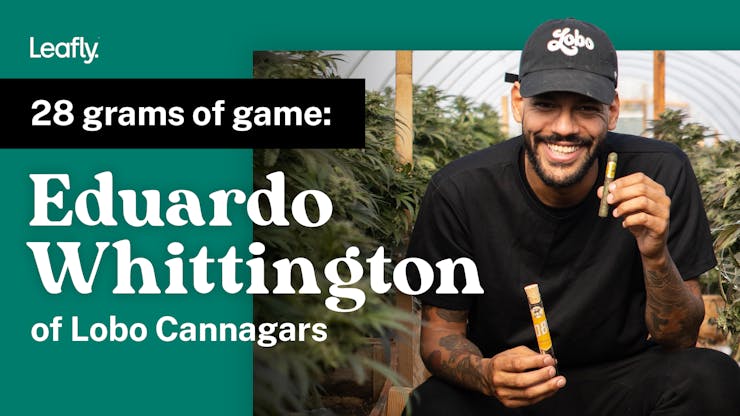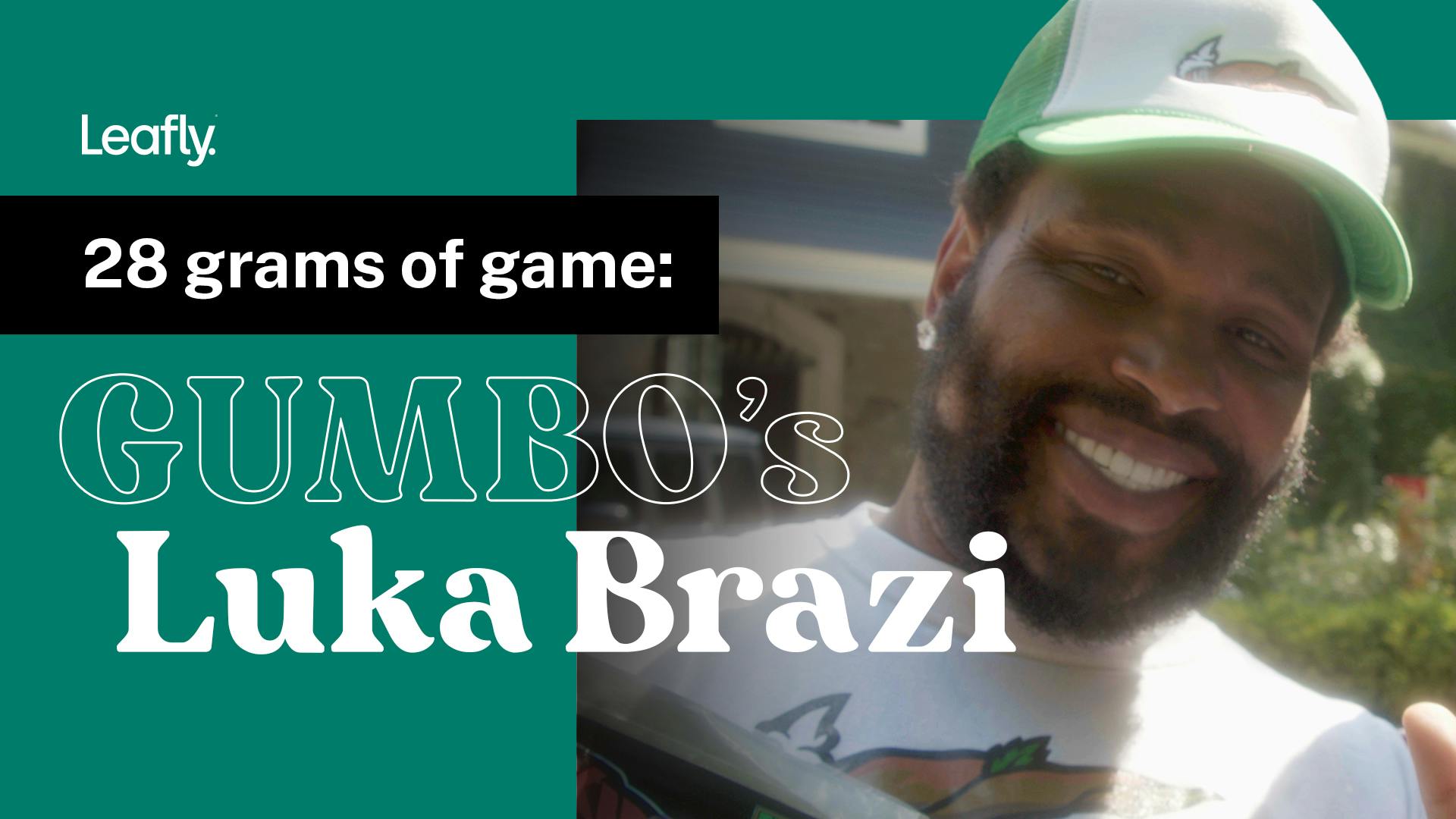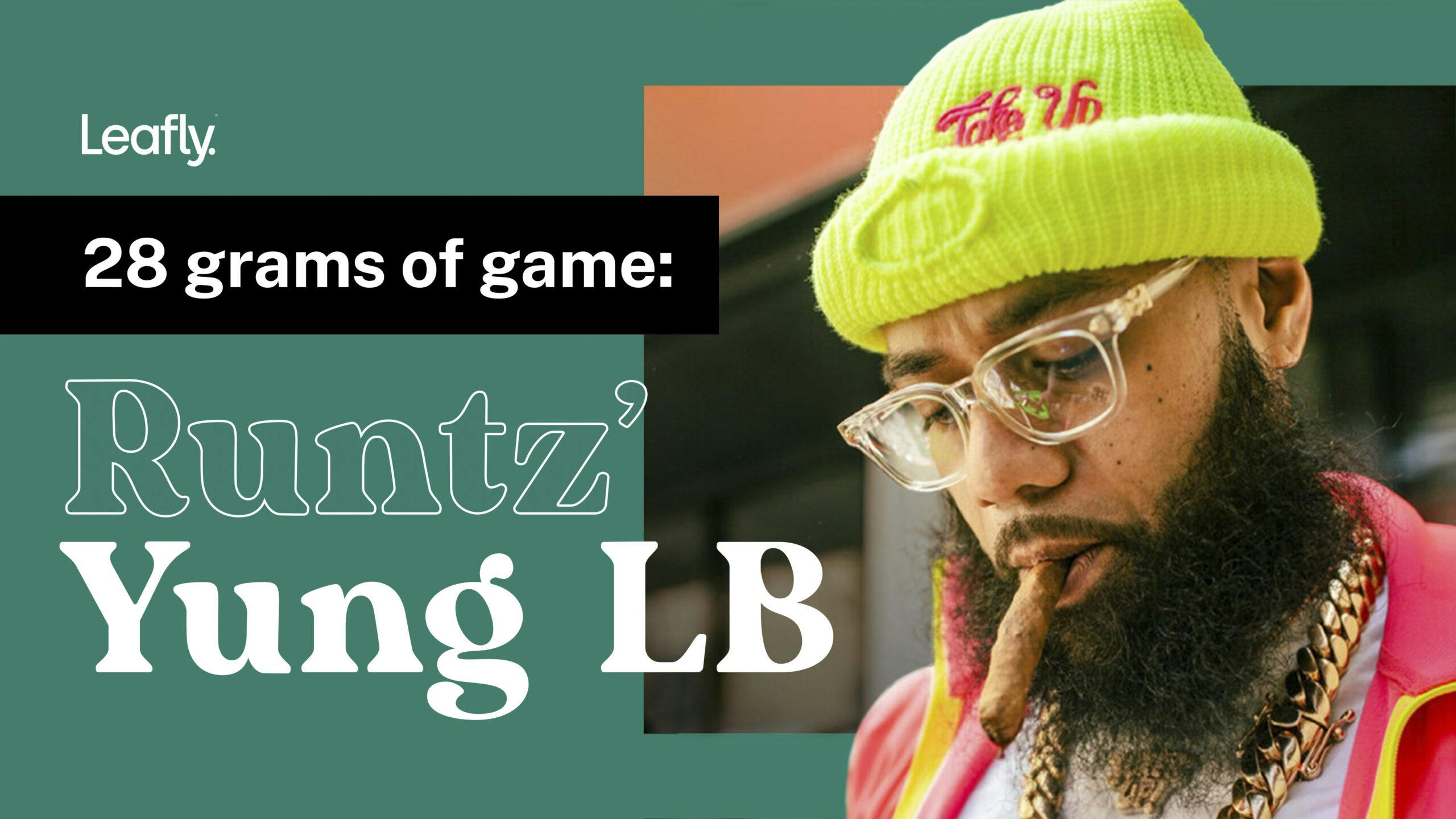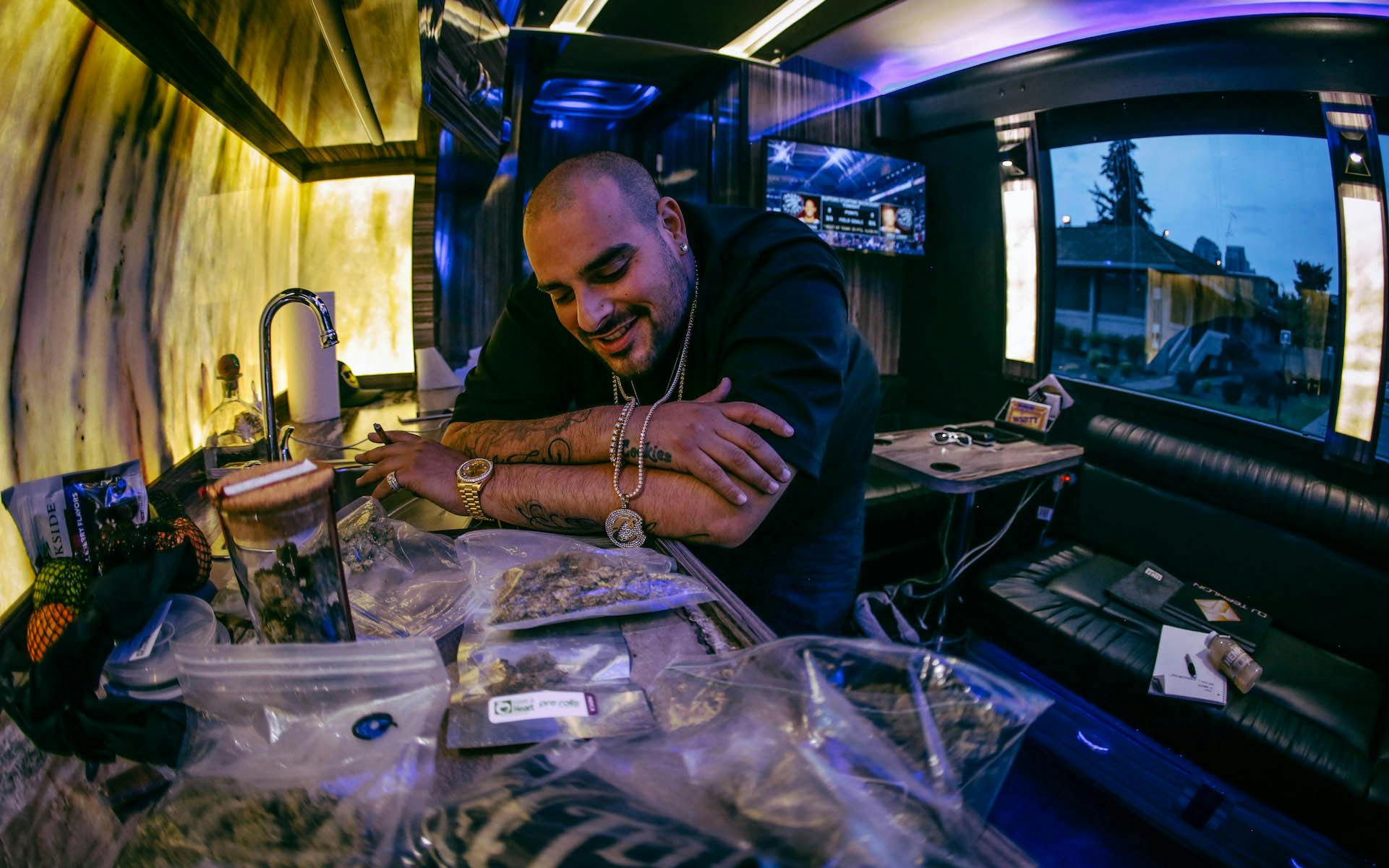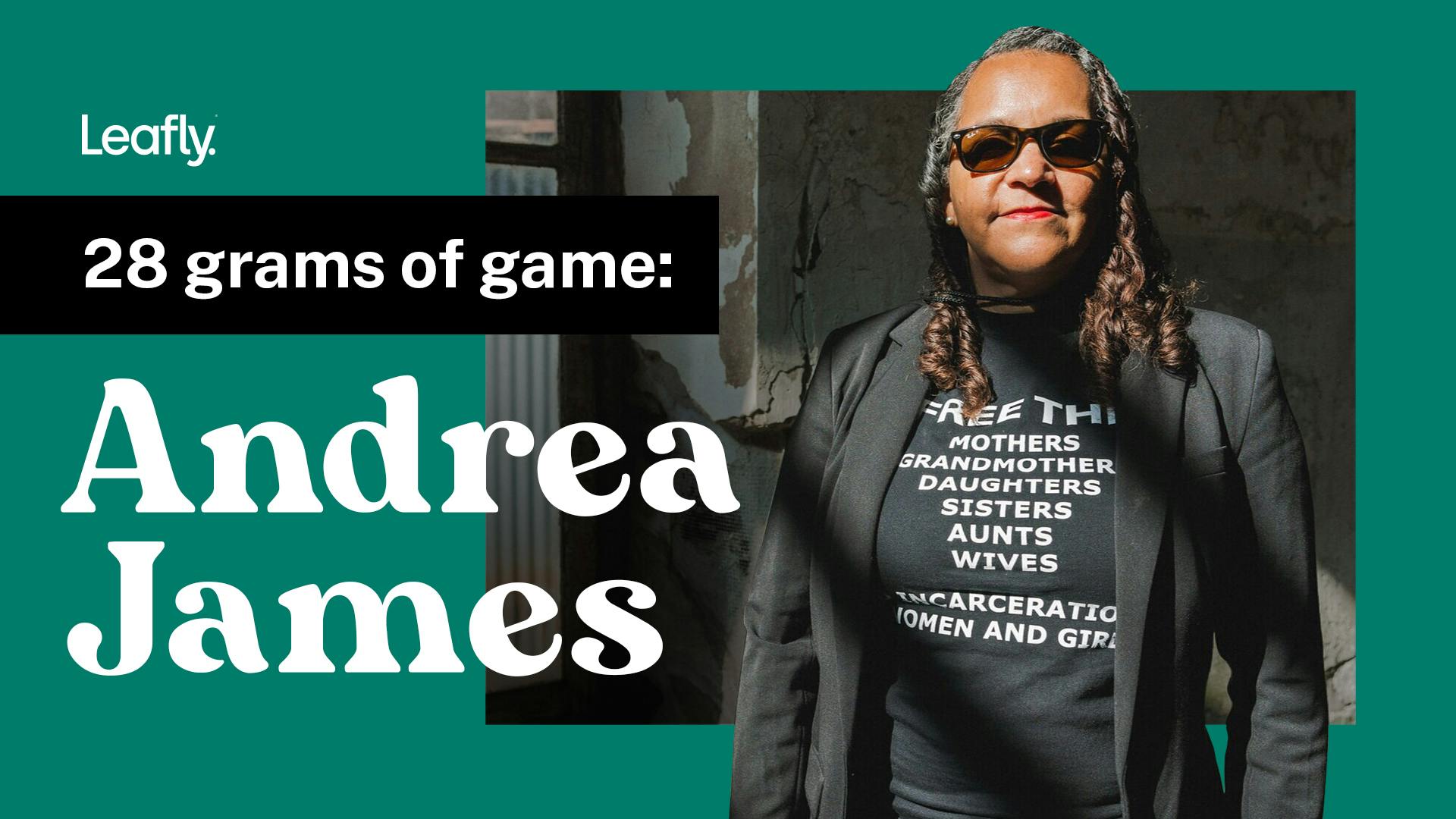Whittington just applied for a license to make cannabis products in his home state of New Jersey. Here’s how he got here, and what’s next.
Eduardo Whittington, aka Eddie Lobo, has been in the weed game for almost a decade. In 2014, he became the third employee on Puffco’s start-up team, playing an integral role in the development of the iconic brand as Creative Director. Whittington now runs his own multi-state company, Lobo Cannagar, and hopes to receive a license to manufacture cannabis products in his home state of New Jersey’s adult-use market.
“(Puffco) was such a cool and rewarding period of my life. From 2014 to 2016, I was just cutting my teeth on the whole new legalization thing in California.”
Eduardo Whittington
Lobo Cannagar is a highly-regarded pre-roll company offering products in Canada and four legal states (Arizona, California, Oregon, and Michigan). Whittington and Lobo co-founder Aaron Raskin partner with licensed cultivators and retailers in each legal territory to produce hand-rolled joints and blunts that smoke the competition.
Whittington, who works as creative director of Lobo, has also worked on media, licensing, and manufacturing operations for national and multinational brands like Natura. Along the way, he’s built a reputation as a connector and executor across the industry.
Leafly caught up with Whittington earlier this year for toke-and-talk sessions at the Natura facility in Sacramento and in his native New Jersey as he prepared to apply for a state license. During our time with this pot culture pioneer, we grabbed a zip of wisdom from his journey to share with other aspiring cannabis operators.
1. Own your narrative

Whittington’s superpower isn’t growing or selling weed. It’s storytelling. His visionary nature is on full display on Lobo’s social media page, which features some of the industry’s finest visuals and campaigns. His creative skillset was a key part of his foundational work at Puffco. And it’s essential to Lobo’s business model. Cultivators and retailers who partner with Whittington know that his products will exceed expectations from promo to package to puff.
2. Adapt to the market
Lobo Cannagar’s business model is unique for a multinational operation. The company doesn’t grow cannabis or sell it out of their own stores. Instead, it partners with the best possible operators in each market to collaborate on hand-rolled bangers that leave an impression on whoever hits them.

“I run my business this way because there is no national cannabis yet,” Whittington explained. “Each state has its own kind of rules and regulations, like a fiefdom with little lords ruling over their states,” he explained.” The fractured industry presented a lane for Lobo to become a non-plant touching business that glides across borders with relative ease. As more markets come online, the model should continue to thrive.
3. Plant solid roots
Whittington’s deep relationships in New Jersey and New York are coming back to help his campaign for a license. His top reason for expanding to The Garden State is to pour the knowledge and success he’s gained from legal weed back into his own community.

As a LatinX applicant, and longtime participant in the legacy market, his top goal is to become a springboard for others to access the budding legal market. Whittington personally witnessed the fallout from the failed War on Drugs, and strongly agrees with the state’s choice to give impacted residents a chance to participate in the legal industry.
4. Pay it forward
Whittington said he always aims to “pay it forward in business.” The practice has built strong networks in both the legal and traditional markets. He told Leafly he intends for his NJ operation to provide resources, training, and job opportunities for the communities that raised him. And he can’t wait to give back to fellow legacy providers who weren’t able to break into the industry in its infancy like he did.
5. Partner wisely
Lobo’s main partner in California is Natura. The cultivation company runs a massive grow in Sacramento with automated facilities that pump out 5,000 pounds of flower per week. Plus, there’s a creative campus that regularly unites some of the brightest minds in cannabis.




“What stood out most about Natura was leadership and the team that they’ve put together to put out such phenomenal products. Every time I’ve come through here, everything has gotten better each time. I’ve watched them build this from the ground up. And that really says a lot about the operation as a whole. They’re always trying to grow and I’m always trying to grow.”
Eduardo Whittington
6. Study your craft
Whittington compares Natura’s headquarters to a finishing school for ganjapreneurs.
“Natura is a massive weed finishing school where you can bring your pothead dreams to reality. It’s a big ass campus and collectively we work to kick butt and sell blunts.”
Eduardo Whittington
7. Collaborate constantly
According to Whittington, the best part of partnering with Natura is the collaboration that happens behind the scenes. Brainstorming sessions in the main office could include international investors scouting the industry, Leafly team members trying not to eat too many Dee Thai edibles, and trailblazers like Eddie and Natura VP Josh Schmidt mapping out the future of the industry.
“It’s a super creative place. I’ve gotten a chance to work with really great brands, like Pistil Point, Jelly Wizard and Cookies—a lot of folks that have put that time in the game and are now able to really leverage their experience in this whole new way.”
Eduardo Whittington
8. Passion is the secret ingredient

“We’re all passionate about the plant,” Whittington says. “We wanna make great products and we love our jobs. We have to be here. Because this is a new industry. You can’t cookie-cut solutions. So having a good group who can think on their feet, who are hustlers, and scrappy, and down to get it out of the mud, that gives you that confidence that you can keep pushing through your adversities. If you get to work with people who are as passionate about what they work on, you’ve got a recipe for success.”
9. Scale until you’re a whale
Another reason that Lobo’s California partnership has flourished is the scale Natura offers its collaborators. “A partner that can help you through the scaling aspects of your business is paramount,” Whittington explained.
Shop highly rated dispensaries near you
Showing you dispensaries nearLobo also plans to raise more capital and build value in other states until a larger MSO or non-plant-touching company makes a Godfather offer. “We’re trying to close the Series A and really turn this into a company worthy of proper acquisition,” Whittington told me.
“The barrier to entry is low right now. People can go out and build brands and gain an audience on their own. That’s where I’m focused. Just making sure I can put a good thing in people’s hands long term. I do have an exit strategy, you know, like an LVMH [Moët Hennessy Louis Vuitton]. There’s gonna be an LVMH in weed, right?”
Eduardo Whittington
10. Free the wolf

For Whittington, nurturing Lobos into a successful business “is like having a pet wolf.”
“It’s super cool when it’s a puppy, but then one day it needs to go to the sanctuary,” he explained. “One day, it might get big to the point where you’re like, all right, man, I gotta send you out to the farm.”
If the wolf analogy doesn’t translate, Whittington has another reason why he’s open to selling Lobo one day:
“I look at this business like being a parent, right? Like I don’t own my child. My responsibility to that child is to shepherd it, to make sure it’s able to sustain itself.”
Eduardo Whittington
11. Presentation is key

“So many businesses in our industry miss the importance of packaging and branding. It’s the first thing we see, because we’re hyper visual creatures,” Whittington said. He loves “touchpoints,” like colors on a package, which he chooses based on the feelings he knows a product will evoke.
His gift for visual communication is best displayed in Lobo’s presentation. From the artwork and packaging, to glass mouthpieces that come in their cigars, Lobo strives for every product to hit like it was pearled by Snoop’s personal roller.
“In a perfect world, your outside package is reflective of what the inside is,” Whittington said. Lobo doesn’t just provide a pretty look. Each pre-roll comes packed with powerful flower from local partners. “I want to highlight all of the interesting vibes and tonalities of this plant, and by extension, the packaging, gives us,” he told me. “It’s an awesome medium for expression and communicating. Everyone likes a nice shiny box.”
12. Profit comes from problem solving
Decades on the illicit market have taught the Lobo crew that weed sells itself. So the best sellers aim to problem solve, instead of slick talking or number crunching.
“I’ve always felt that profits are a byproduct of energy well spent,” Whittington told me. “Profit shouldn’t be where my first focus should be as a business owner. Doing things that have an impact and doing things you’d actually be proud of. That is what’s most important to me.”

“I wouldn’t wanna put out anything that I wouldn’t wanna smoke. That’s a sustainable model for me. So I wanna wake up, work with people I love to work with, and smoke great weed. I am proud to add value to people around me. This is all a gift. So I’m just happy to be here.”
Eduardo Whittington
13. Pay homage to the pioneers
“I think the best way I can pay homage to the traditional market is to highlight the things that make it awesome,” Whittington said. “That feeling of finding that really bomb weed. It’s different now, but it still exists. I wanna show off and empower the legacy people who spent their time and energy doing the heavy lifting to get us here. And I think the pivot will come, where we respect the architects of the industry with the proper reverence. it’s time to let the light in and show people this culture in a way that really gets rid of all of the taboos.”
Eduardo Whittington
14. Strive to leave a mark
“Being in the industry this early in its lifespan,” he added, “you really get a first player advantage. Because there is no old way of doing it. And that always kind of psyches me up creatively. In my past design work, I might have a liquor company that I’m hired to do branding for. And there’s really only so much you can do, because it’s all been done. But how often in our civilization, do times like this come around where it is truly the first time someone is doing their thing?”
Eduardo Whittington
15. Go global
Whittington told me he doesn’t think Americans and Canadians should be the only people with access to great legal cannabis. “I want to bring a mature deployment of resources and skills to the international market,” he said. Lobo is currently seeking “solid operators and trustworthy brands so they can work on meeting new enthused people overseas.”
“In the next five years, I’d love to be focusing on global cannabis. Sharing this awesome plant and this way of life around the world… Basically, I wanna get high with my French homies, man.”
Eduardo Whittington
16. Claim your name

What’s in a name? Whittington admits he just liked the way Lobo Cannagars sounded, and that it hinted at his LatinX roots. “I wanted a Spanish name, and I love wolves and dogs,” he told me. Lobo is another name for Mexican wolves. “I saw a cool ass poster for some old shit called the Lobo King of Mexico. I was like, ‘That’s hard!’”
17. Break the mold
Whittington didn’t grow up in a cannabis household. “That was a definite no-no, and a great way for me to be out in the streets,” he said. Until recently, his family didn’t understand why he chose to work in weed.
“It wasn’t until two years ago that my grandmother stopped asking, ‘So, when are you gonna get a real job?’”
Eduardo Whittington
Whittington admitted, “It kind of hurts. But, it is what it is. They see the world through their lenses, which were shaped by their times.”
18. Fill a hole in the market
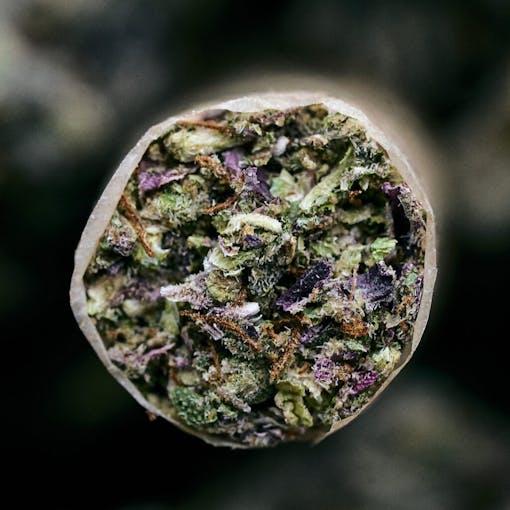
“We started in 2017, pre-legalization in California,” Whittington told me. “Those pre-Prop 215 days were wild,” he said of the era when countless new weed businesses were sprouting in The Golden State.
“Pre-rolls were just treated like shit. Whatever crop was left over got thrown in. And I just thought that was wrong. The approach was wrong. It should be, you know, really good weed all ready to smoke, as a value add.”
Eduardo Whittington
19. Keep it blunt

“I’m an East Coast head,” said Whittington. “As much as I love dabs and concentrates, I’m a blunt smoker. Everyone I know, including my girl, is one. But I always wanted a better Backwood for my blunts. So Lobo came from the fact that nothing really existed at that time for just good weed that’s already rolled.”
20. Offer unforgettable experiences
“The blunt, to me, is the essence of independence,” Whittington said. “I definitely remember my first blunt, just like the first time you asked out a shorty and she said yes. So to me, every blunt is an experience. All the rituals that came with it pre-legalization are different now. But that feeling remains.”
Whittington has another theory on why blunts hold special meaning in his community. “I think blunts are synonymous with young adults on the East Coast,” he said. “It comes from not having the privilege to ride around with a pipe in your car or keep a bong in your room. We used to take those L-rides in the car or go for a long walk so that when we were done, there was no evidence. No paraphernalia. Pipes are a privilege.”
21. Cater to the cannaseurs

Whittington compares the weed industry to a younger version of the wine market. With Natura helping meet demand for up to 50,000 products a month, Whittington can focus on quality control. He looks at viticulture (wine growing) as a guide.
“How do you make a hundred thousand products a month, and it all be good? From the soil that it came from, there is all this planning that goes into how wine is produced. And people really pride themselves on understanding all of those kind of nuances. That same thing exists in cannabis.”
Eduardo Whittington
22. The power of relativity
“Always remember that you can course correct,” Whittington said. “You can change your path to your goals, or even set a new goal. Success for you is not success for someone else. Success is relative. So understand yourself and what your goals are, don’t be influenced by someone else’s idea of success. That’s when you end up going in circles with no destination.”
His clearly defined goal helps him chart Lobo’s path around the world. “I just wanna put out a really good product,” he said. “That goal leads me to understand how to get to register in all these new states. I want to do the work to lock in my licensing, because it’s a required step to reach my goal. So set your goal and just keep moving towards the target.”
23. Jack be nimble
Whittington said you have to be “nimble to wade the risky waters” of legal cannabis. He said he loved the challenge, but it’s not easy.
“Not being funded and deploying your capital and reputation to get all this infrastructure and build it all out is a huge risk. And nobody knows if they have the right plan yet. You can look at other industries and say, ‘Do you wanna be the Coca-Cola of the whole industry, or the Red Bull of your specific lane? These questions come up quick, so you have to know how deep in the pool you wanna jump. And once you jump, are you ready to adjust?”
Eduardo Whittington
24. Know your audience
Whittington admires the “out of the trunk” energy that brands like Cookies and Runtz have brought to the industry. “[Runtz co-founder] Yung LB knows his demographic, and it’s not soccer moms,” he explained. “That’s why they have lines around the corner and the corporations can’t get that brand loyalty.”
Whittington said he can’t wait for the law to permit more touchpoints for consumers to hold onto. “We haven’t even done the cool shit yet,” he said. “People have so much of their identity wrapped up into all these products and companies. Like if you’re drinking a certain champagne and driving a Mercedes, the feelings you paid for were cultivated. It was the people who made those goods and advertisements. So imagine the national ads for weed. The Budweiser frogs of weed.”
25. Find peace in the plant
In legal weed, there’s no law against getting high on your own supply. And over the years, Whittington has grown a deep bond with the plant, which he said boosts his mental and physical health.
He initially used cannabis to break out of a pharmaceutical rollercoaster. After being prescribed different medications over the years, weed helped him reset.
“I feel like homeostasis is achieved through consumption of this plant,” he told me. “It helps me maintain perspective. It helps me just take a breath and meditate and reflect. I definitely find that the plant makes me less reactive to things. I’m a little high strung. So for me, it just turns the world from an 11 to like an eight.”
26. Meet people where they are

“Since Lobo is a cannabis experience company,” he said, “I want to help curate how people interact with this plant. I study each market we enter and try to serve the different versions of smokers in the area. Starting with our Minis pre-roll packs, which are our little half gram joints. But we also have seven half gram joints. 7-8 of those is a really convenient and cost-efficient option for a lot of people. So I want to meet the consumer where they are with products that make their experience easier.”
Eduardo Whittington
From the glass tips (no soggy joints!) to the diverse portion sizes, Whittington says every detail is chosen with the end-user in mind. Along with the Minis, he added that they offer: “1-gram iterations and full size, two-and-a-half-gram hand-rolled blunts.”
27. Study intentions: Yours and others
Whittington said he can’t wait for federal laws to change so he can go vertical. But he doesn’t have much faith in those tasked with making that happen. “Their intentions might be good,” he said of the lawmakers currently working on legalization. “But they’re policy people,” he explained. “They’re not practice people. None of them gave a thought to weed until they absolutely had to.”
In the meantime, Whittington is staying intentional about the elements of his business he can control. That includes infusing his trademark enthusiasm into every element of the operation.
28. The journey is worth it

If you’re in the game for overnight success, kindly head for the exit. Whittington said the industry will be won by those who stay present and enjoy the highs and lows of being an entrepreneur in an emerging industry.
“The journey is worth it. If someone has an idea that they want to try, go do it. It’s not that hard to get started. Don’t wait for permission to start the race.”
Eduardo Whittington
